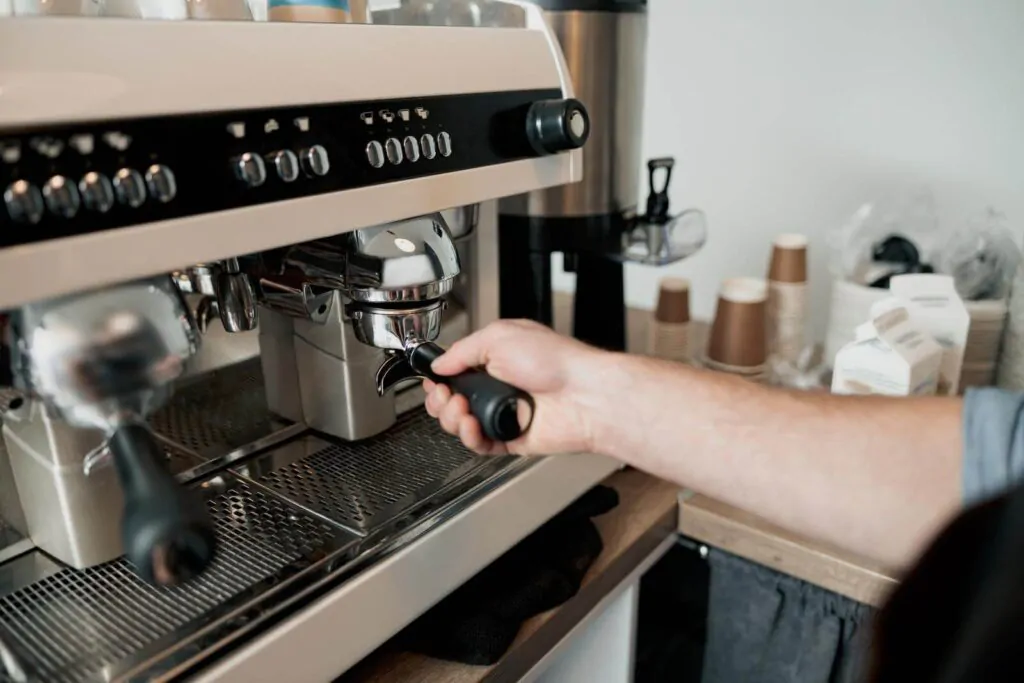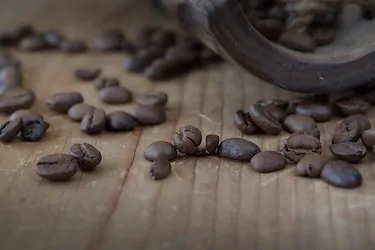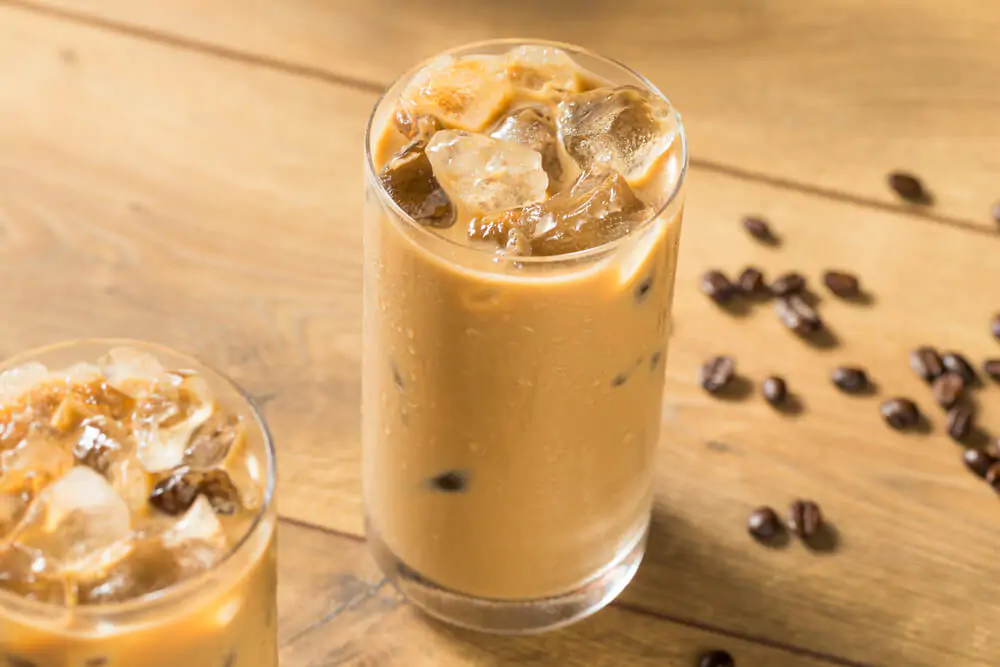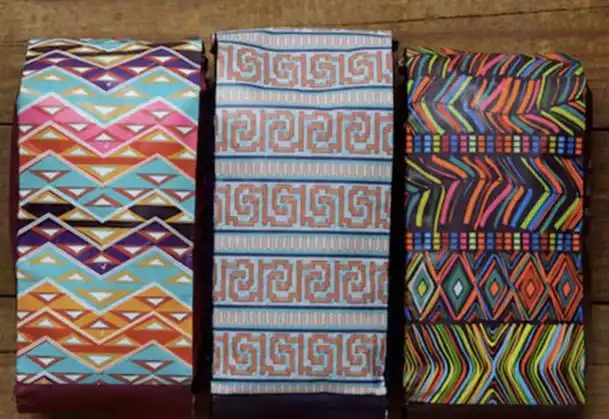Perhaps you’ve asked yourself, “Can I use regular coffee in an Espresso machine?”. YES, you can! However, it is not recommended. We’ll explain why.

We all love coffee. Everyone needs that caffeine kick early in the day. The other day, I was wondering if I could just use my regular coffee in my espresso machine.
Here’s what I learned. Yes, you can use regular coffee in an espresso machine, but you shouldn’t. Espresso machines are designed differently to use pressure and more fine ground to create the desired flavor, taste, and strength.
This doesn’t necessarily mean that it won’t work or that you can’t do it. It’s just not the correct way or suitable to create a great-tasting blend. You may run into watered-down results and bitter taste.
You have other considerations to consider when considering what blends and methods to use in your espresso machine. Let’s dive into some of those other common questions.
- Do I Need Special Coffee For An Espresso Machine?
- What Is The Difference Between Espresso And Regular Coffee?
- What Kind of Coffee Do You Use In An Espresso Machine?
- The Dark Roast – The Silent Winner
- Is Espresso Just A Strong Coffee?
- Why Are They Different?
- Is Espresso Stronger Than Iced Coffee?
- Is Coffee Watered Down Espresso?
- Is Drip Coffee Or Espresso Better For You?
- Is Espresso Bitter?
- Be Willing To Adjust
- What Do You Believe Are The Biggest Difference Between Coffee And Espresso?
- FAQs About Using a Regular Coffee In an Espresso Machine
Want a FREE bag of coffee? Start your Atlas Coffee subscription and claim yours today. Cancel any time.
Do I Need Special Coffee For An Espresso Machine?
This is another common question for new espresso machine owners. Do I need special coffee for an espresso machine? The most important thing to remember is that espresso is not a form of coffee or a coffee bean. It’s not a roast either. Espresso is the process of using hot forced water at high pressure to make very fine ground coffee.
You don’t need anything special and can use any kind of beans to use your espresso machine. Whatever blend of roast you use for your espresso machine comes down to personal preference and what taste/mix you are looking for. Of course, you should always use fine grinds if you plan on using regular coffee.
If you don’t, you run the chance of running into the same issue we discussed previously, where the taste would be watered down, and you may also experience a bitter taste.
What Is The Difference Between Espresso And Regular Coffee?
So what are the key differences between espresso and regular coffee (also known as traditional drip coffee)?
The fineness of the coffee grind and the total time needed to brew the coffee are two of the most significant differences between espresso and traditional drip coffee. The reason behind this is the forced pressure espresso machines use to create the coffee.
Traditional drip coffee also drips and brews at a much slower pace and doesn’t reach the high temperatures that espresso coffee does.
What Kind of Coffee Do You Use In An Espresso Machine?
Back to the misconception again, but still a popular question that comes ups frequently. What kind of coffee do you use in an espresso machine? This again comes down to personal preference and nothing more than that. If you prefer, you can even use just a plain coffee roast.
Taste, strength, and overall flavor may not be 100% ideal doing so, but your espresso machine isn’t nearly as picky as you may think.
The Dark Roast – The Silent Winner

The dark roast is commonly known to be one of the best options for making espresso. You can get a dark roast espresso in a variety of popular flavors such as tobacco, chocolate, or even sugar. Most espresso enthusiasts believe that the key to finding the best blend for an espresso machine is striking a healthy balance between high levels of sweetness and lower levels of acidity.
Some also search for other preferences for the optimal espresso blend, which can include
- Aiming for Natural Processed Coffees
- Sticking to roast with the labels Espresso included
- Other popular mixes/blends such as Caramels, Nuttiness, or Cherry/Dried Fruits
Is Espresso Just A Strong Coffee?
So, we finally arrive at the real reason we want espresso or coffee to be with. The strength. We all want whatever puts some spring in our steps during the early morning drive to work.
So, is Espresso just as strong as coffee? Coffee contains more caffeine than espresso making it the stronger of the two options. However, there is a good reason for this.
It all comes down to the volume between coffee and espresso. Espresso is typically only in 2 oz single shots or double shots. For coffee, the standard measuring size is a 12 oz cup.
NOTE: A 12 oz cup of coffee, on average, has 120 milligrams, and the espresso comes in @ 80 mg.
Why Are They Different?
Several things can be the root cause of the caffeine levels varying between coffee and espresso, but overall, here are some of the known reasons for the different levels of caffeine with espresso.
Temperature
The hotter the brew, the faster the caffeine can be extracted from the bean. With espresso, the heat forced through during the process happens very quickly. More caffeine can be removed quickly and into your 2oz cup of joy.
The Actual Grind
We have already discussed how fine grinds are desired for making espresso. The actual extraction process itself can impact caffeine levels. Since espresso goes through the pressurized process, coffee holds a unique advantage in that you can just add more grounds to obtain higher caffeine levels.
Is Espresso Stronger Than Iced Coffee?

Iced coffee is an entirely different story. Even though your regular coffee or drip coffee has more caffeine, ice coffee is much more concentrated. This alone makes the caffeine levels jump.
In the grand scheme of coffee vs. espresso, many variables can come into play when determining the overall caffeine strength of the drink.
Is Coffee Watered Down Espresso?
Another question that can come up during the debate is if coffee is just watered-down espresso? The answer is no. Coffee and espresso are two entirely different things and use two entirely different processes to reach the desired results.
Espresso uses fine grinds and fast pressurized heat and water to create the final product we consume, and coffee uses a slow drop, filter, and a nice glass pot we are left to clean when the job is done. Coffee is not watered-down espresso.
Is Drip Coffee Or Espresso Better For You?
This is one area espresso takes home the gold medal. Espresso is overall better for you. Espresso doesn’t use filters.
The filter with coffee blocks many of the natural minerals from making it into your cup of Joe. Espresso, on the other hand, even with the high-pressure heat system, will allow all these oils and minerals to make it your cup.
Overall makes espresso a healthier overall choice. Also, if you stick to just the 2oz espresso shot, you consume less total caffeine in most circumstances. We all know what the physicians say about caffeine and how it should be avoided.
If you’re a health guru and can get your fix on just 2oz of fluid, espresso is the direction you want to take to reap the most long-term benefits.
Is Espresso Bitter?
This is one of the biggest complaints and fielded questions about espresso. Is espresso bitter? Yes, espresso can be very bitter. It’s due to the high concentration of espresso blends typically used.
There is plenty you can do to combat this, however. Here’s a quick article breaking this down further for you.
If you ask me, espresso doesn’t need to be and shouldn’t be bitter. You can choose a new flavor or blend. If you use and experiment with blends, you should be able to find a nice happy middle ground between strength and taste with your espresso.
The perfect blend should be slightly bitter, rich with flavor, and possess a smooth finish. Most caramel and chocolate blends do a fantastic job of hitting this desired taste right on the nose.
Be Willing To Adjust
If your struggling with finding the perfect blend we discussed previously, one of the best methods is just trial and error. You can adjust the blend and begin changing the grind size. Both will significantly impact the overall taste of your espresso.

Another method is just to surf the web. Plenty of people love espresso and even more drink coffee. You can find dozens of forums and other informational resources to help aid you in what changes may need to be made to arrive at a better-tasting brew.
What Do You Believe Are The Biggest Difference Between Coffee And Espresso?
We covered many of the known differences between coffee and espresso. Caffeine differences, blend differences, and even which form of coffee is overall going to be the best for your health. What’s your experience with the coffee vs. espresso debate?
What methods do you use to find the best overall blend of a day Kickstarter and a flavor that can’t be resisted?
FAQs About Using a Regular Coffee In an Espresso Machine
What is the best coffee liqueur for an espresso martini?
The most popular option is Kahlua, although many prefer Tia Maria, another rum-based coffee liqueur because it has a less sweet flavor. It features rich, well-balanced notes of chocolate, dried fruit, and Madagascar vanilla, in addition to the distinct flavors of Arabica coffee beans.
What is the best espresso coffee machine for the home?
The best espresso maker for a home is the Rancilio Silvia. It is a straightforward machine (there is no grinder or dual boiler), yet it produces espresso that is of café standard and works flawlessly. It is also quieter than most other products available on the market.
What is the best espresso machine for a small coffee shop?
The Breville Barista Express is the best espresso machine for a small coffee shop. This is a semi-automatic device, and its functionality will appeal to you if you like to monitor and control the brewing process. A gleaming stainless steel casing surrounds the controls.
What are the best coffee beans for automatic espresso makers?
Kicking Horse Whole Bean Coffee is the best brand of coffee for automatic espresso machines. It contains a blend of beans from South America, Central America, and Indonesia and has a lot of caffeine. In addition, it is organic and contains whole beans for the best possible flavor.
Which coffee is best for Delonghi espresso machine?
The best coffee beans for Delonghi coffee makers are Caffia Espresso Crema coffee beans. This is the most popular espresso coffee bean in a variety of 8 blends. They are a smooth and balanced traditional blend of specially roasted coffees from India and Africa.

